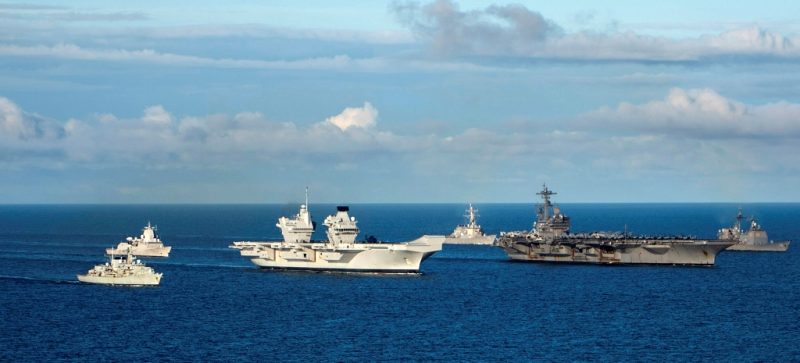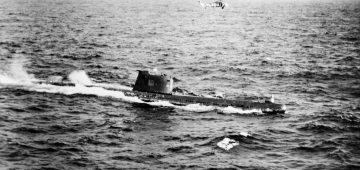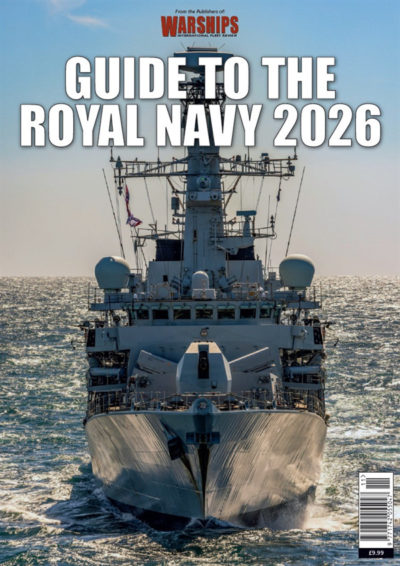
Photo: US Navy.
Far from 2017 being the ‘Year of the Royal Navy’ – as suggested by the UK Govt and RN top brass – it turned out to be an annus horribilis (despite the welcome arrival of the first new super-carrier).
The Service has become engulfed in reports of a sex and drugs scandal in a nuclear missile submarine while also being threatened with cuts that will lop off key elements of its amphibious warfare force. There are also serious fears that badly needed frigates will soon be discarded and a survey vessel is also to be axed. In addition to the discarding of ships, there is the rumoured loss of more than 1,000 Royal Marines.
Above and beyond all this there is something else at work. There appears to be a serious decline in confidence and purpose in some of the RN’s people. This isn’t surprising after nearly 30 years of material contraction that has seen the British fleet reduced to less than half what it was in the late 1980s.
The majority of British politicians of today seem woefully out of touch with the fact that the naval environment has moved on from the more benign era of the immediate post-Cold War. We are now living in an ever more dangerous world in which serious threats at (and from the) sea are expanding rapidly. Terrible new sea-based conventional weapons can sink ships, destroy trade and also devastate cities. Yet the politicos at the helm of the Royal Navy’s omnishambles – which really started with the dreadful errors of the 2010 Strategic Defence and Security Review (SDSR) – utterly fail to understand all this.
Britain needs to field a fighting fleet that can wage war with vigour. It needs to be capable of destroying the enemy while large enough to take losses and survive to fight another day (and the days and weeks after that). There are serious doubts it can still go in harm’s way for any length of time.
The sea-based nuclear deterrent force must also be the apogee of professionalism, motivated clearly by a duty to provide the UK and its allies with the ultimate protective umbrella.
How did the Navy’s awareness of its fighting purpose shrivel in recent times? The intellectual collapse started more than a generation ago, about the time the Navy stopped teaching history at Dartmouth and the course for new entry officers was reduced to half a year.
Six months was enough time to train Royal Navy Volunteer Reserve (RNVR) officers in WW2 but they had already served in the lower deck as officer candidates and with sea-time to their credit. However, a navy that does not teach its own history – that it is a fighting service that for centuries has manifested a habit of victory – is fated to fail both organisationally and operationally. Without the instinctive and intimate knowledge of the achievements of previous generations, and an in-bred desire to repeat those successes, failure follows.
Witness the abject catastrophe of the ‘Cornwall 15’ in 2007. It was not just that fifteen sailors and RMs in one of HMS Cornwall’s boats easily surrendered to Iranian Revolutionary Guards, but it also showed a failure at other levels, including the circus surrounding the release and return to the UK of the sailors and marines. Now we have had a drug abuse and sex scandal in Trident submarine HMS Vigilant.
The effect of the ‘Cornwall 15’ was to lose one First Sea Lord an opportunity to become Chief of the Defence Staff (CDS) and, now, with the alleged ‘carpeting’ by the (recently resigned) Secretary of State of today’s 1SL over Vigilant. The First Sea Lord needs every support possible at the present time for, wrapped in whatever mealy-mouthed words politicians like to use, the reality is that a major defence review is being conducted with indecent haste.

The Royal Navy and Royal Marines are high on the hit list. It supposedly also includes naval Wildcat helicopters, a crucial element of sea control and protecting ships. The feared cuts, if implemented, will devastate the Royal Navy and RMs, reducing Britain’s main means of defence in troubled times to a second rate force.
No wonder that an Opposition spokesman on defence described the prospect as “utterly bonkers.” Dealing with these cuts also requires intellectual honesty. It was unwise of (former) Secretary of State for Defence Sir Michael Fallon and the Navy’s senior leadership to suggest that the lightweight 2,000 tonnes Offshore Patrol Vessel HMS Medway can deploy to Asia-Pacific as any kind of replacement for a serious piece of fighting steel.
If the mighty US Navy orders the construction of new warships and considers reactivation of mothballed Perry Class frigates – because it fears its new 3,000 tons Littoral Combat Ships are not tough or well armed enough to handle the same threat zones – what on earth is the UK thinking? Oh yes, that’s right, possibly selling off some more its Type 23 frigates to Chile!
Sending Medway and her sisters into the world’s most serious high threat zones – where heavily armed navies are expanding at a rapid rate – is merely to deliver floating targets to a future enemy and potentially condemn their crews to death and injury.
Meanwhile, there is a mistaken impression among some commentators that the two new aircraft carriers are the source of the Navy’s problems. However, they have been paid for in money slashed from the RN budget, plus personnel, aircraft and ships cut in preceding defence reviews.
This is damage the Navy is still hobbled by. Besides, the production cost of two carriers, at £7bn, but amortised over their expected 50-year lifespan, is small. It is especially small compared with, for example, the Royal Air Force’s Typhoon fighter programme, which exceeds £80bn for 160 jets.
The Royal Navy has clearly made dramatic reductions and savings and keeps on doing more, or at least as much, with less funding. But each time the RN does that it gets less from the politicos. The politicians hide their savage cuts to fleet strength by waffling on about the defence budget getting bigger – it’s less than even ten years ago as a percentage of GDP – and claims of Royal Navy growing (it isn’t, it’s getting a lot smaller). The politicians and MoD have, thank goodness, now stopped uttering this falsehood though they still try to spin the defence budget as ‘growing’ (but compared to what and when?).
In the mid-1980s the UK spent five per cent of GDP on defence, which fell to 2.4 per cent in the late 1990s, but then rose again in the early 2000s to fund wars in Afghanistan and Iraq (which did not benefit the RN, which suffered serious cuts). In 1985/86, ten per cent of public spending in the UK was devoted to defence whereas by 2014/15 it was half that.
According to World Bank figures nations currently spending around three per cent of GDP on defence include Botswana, Colombia, Mauritania, Morocco and Singapore (which for all their virtues are not economic powers on the same scale as the UK).
Meanwhile, the UK Govt boasts about spending two per cent of GDP on defence, the minimum required by NATO. It even pads out that total with things such as pensions (which do not contribute to front line defence capabilities). The First Sea Lord needs to muster all his strength to resist further cuts to the Navy and it’s no good playing the politicians’ game of divide of rule, of horse trading on which platforms or people should go to save others.
There must be no cuts at all, not in people and not in ships. The defence allocation to the Royal Navy must be boosted and actually raised to prevent Britain suffering defeat at sea in a future conflict. If and when that catastrophe comes to pass we know whose hands will be covered in blood: Politicians, both current and comfortably retired or pursuing new careers. They will own the disaster.

Those of us who have charted their destruction of the Royal Navy over the past three decades will make sure the world knows that they are to blame. Future disaster can still be averted if the UK Govt wakes up to reality and raises the defence budget to at least three per cent.






Comments
Sorry, comments are closed for this item